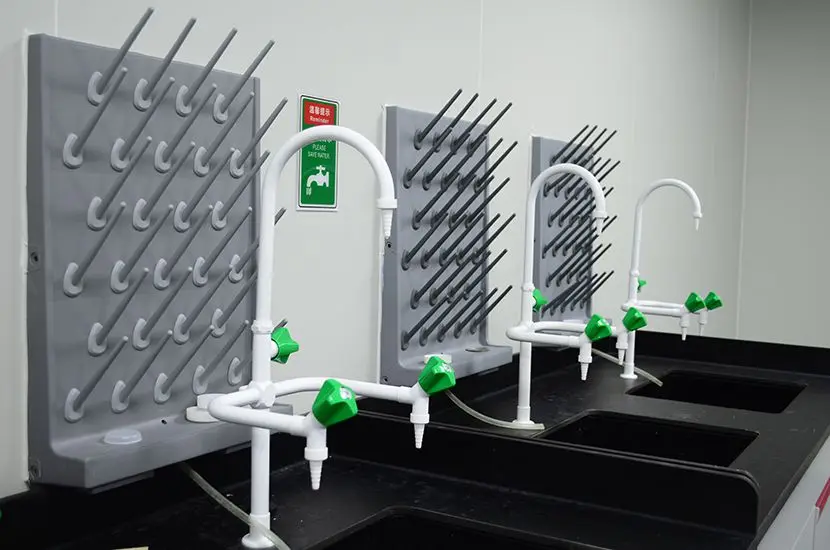
Differences Between GOST R Certificates and CU-TR/EAC Certificates
With the deepening of globalization, international trade has become increasingly frequent. However, different countries and regions have their own standards and requirements for product safety and quality. Therefore, products usually need relevant certification before entering the target market. Among these, eac certification and GOST certification are two common types of certification.
When to Require a GOST R Certificate and When to Require a CU-TR/eac certificate?
In Russia, mandatory certification (a written proof that a product meets regULatory requirements) can be carried out through two systems:
1. The Eurasian EconoMIC Union (EAEU) Certification System (commonly referRED to as TR CU or EAEU TR system)
2. The Russian Standards Agency (Rosstandart) Mandatory Certification System, commonly known as the GOST R Certification System.
Product certification within the CU-TR/EAC certification system is conducted according to the technical regulations of the Customs Union (Eurasian Economic Union).
The Rosstandart (GOST R) mandatory certification system ensures compliance with the national (GOST) standards of the Russian Federation.
As a regulatory framework, the technical regulations of the Eurasian Union take precedence over national GOST standards. Therefore, mandatory GOST certification is only conducted under the GOST/GOST R system if the technical regulations of the Eurasian Union/Eurasian Economic Community have not yet been issued.
Certification System:
- EAEU Certification System (TR CU/EAEU):
- Standards: Eurasian Union (CU/EAEU) technical regulations
- Controlled Products: Products listed in TR CU/EAEU regulations
- Regulatory Compliance Documents: TR CU/EAC certificate or TR CU/EAC declaration of conformity
- Rosstandart Mandatory Certification System (GOST R):
- Standards: Russian Standards (TR RF, GOST, GOST R)
- Controlled Products: Products listed in the Russian Federation's Government Order No. 2425 of December 23, 2021
- Regulatory Compliance Documents: Russian Federation Certificate (GOST R certificate) or Russian Federation Declaration of Conformity (GOST R declaration)
Differences Between CU-TR/EAC Certificates and GOST R Certificates
- CU-TR/EAC Certificate:
- Products Applicable: Products listed in the TR CU/EAEU technical regulations must be certified in the form of EAC certification
- Validity Scope: Within the entire Eurasian Economic Union (EAEU) member states
- Certificate Color: Orange
- Certificate Header: Eurasian Economic Union (Customs Union)
- Maximum Certificate Validity: 5 years
- Russian GOST-R Certificate (Mandatory GOST R Certificate):
- Products Applicable: Products listed in the unified list of products requiring mandatory certification under PP RF № 2425
- Validity Scope: Russian Federation
- Certificate Color: Green
- Certificate Header: Russian Federation
- Maximum Certificate Validity: 3 years
Differences Between CU-TR/EAC Declaration of Conformity and GOST R Declaration of Conformity
- TR CU Declaration of Conformity:
- Products Applicable: Products listed in the TR CU/EAEU technical regulations must be certified in the form of EAC certification
- Validity Scope: Within the entire Eurasian Economic Union (EAEU) member states
- Certificate Header: Eurasian Economic Union (Customs Union)
- Maximum Certificate Validity: 5 years
- Russian GOST-R Declaration of Conformity (Mandatory GOST R Declaration):
- Products Applicable: Products listed in the unified list of products requiring mandatory certification under PP RF № 2425
- Validity Scope: Russian Federation
- Certificate Header: Russian Federation
- Maximum Certificate Validity: 3 years
Similarities Between CU-TR/EAC Declaration of Conformity and GOST R Declaration of Conformity
There is no essential difference in the evaluation (confirmation) of product compliance with the technical regulations of TR CU/EAEU or Russian GOST certification standards.
General Steps of the Certification Procedure:
1. Submit a standard application to the certification body.
2. The applicant submits technical, operational, and accompanying documents for the product to the certification body.
3. Clarify the technical specifications and standards of the application product.
4. Approve the certification plan.
5. Select samples and send them to an accredited testing laboratory for testing.
6. Analyze production conditions (if required by the certification plan).
7. Certification experts analyze the received test reports, production inspection reports, and technical documents.
8. Decide whether to issue the certificate.
9. Register and record the certificate in the unified registration system.
10. Issue the certificate of conformity to the applicant.
11. Affix the certification mark to the certified products.
12. Conduct periodic inspection control of certified products (if required by the plan).
Email:hello@jjrlab.com
Write your message here and send it to us
 Weee authorised representative germany
Weee authorised representative germany
 Where to Apply for 2026 Air & Sea Transport Ce
Where to Apply for 2026 Air & Sea Transport Ce
 Guide to IEC Test Reports for Lighting Exports
Guide to IEC Test Reports for Lighting Exports
 IEC/EN 62471 and IEC/EN 62778 (Photobiological Saf
IEC/EN 62471 and IEC/EN 62778 (Photobiological Saf
 How to get IEC 62471/EN 62471 Test Reports?
How to get IEC 62471/EN 62471 Test Reports?
 IEC 62471 Photobiological Safety Certification
IEC 62471 Photobiological Safety Certification
 EMC Item – Introduction to Radiated Emission Test
EMC Item – Introduction to Radiated Emission Test
 IEC 62471 Photobiological Safety of Lamps and Lamp
IEC 62471 Photobiological Safety of Lamps and Lamp
Leave us a message
24-hour online customer service at any time to respond, so that you worry!




